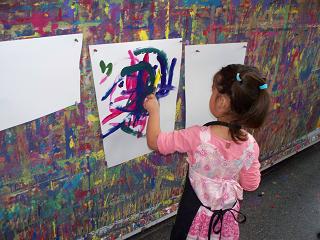 An interesting new study by Sheena S. Iyengar, a professor at the Columbia Business School and author of The Art of Choosing found that a culture’s views on choice affect task performance, decision-making, and happiness. Specifically Asian-American children perform best in mom-chosen tasks, Anglo-American children perform best when they choose their own tasks. She discusses her research in a recent TED talk. I found this study fascinating because I often wonder why my own daughter, when asked to perform a chore or a task, chooses inevitably not to listen to me, but instead will generally do what she wants regardless of any possible discipline.
An interesting new study by Sheena S. Iyengar, a professor at the Columbia Business School and author of The Art of Choosing found that a culture’s views on choice affect task performance, decision-making, and happiness. Specifically Asian-American children perform best in mom-chosen tasks, Anglo-American children perform best when they choose their own tasks. She discusses her research in a recent TED talk. I found this study fascinating because I often wonder why my own daughter, when asked to perform a chore or a task, chooses inevitably not to listen to me, but instead will generally do what she wants regardless of any possible discipline.
Iyengar’s talk and book describe an actual test in Japantown, San Francisco, with 7 to 9 year olds, half of whom had immigrant parents from Asia, where the kids spoke the parents’ native language in the home. The other groups’ families were generally long-term citizens and native English speakers, speaking English in the home.
The experiment broke the kids into three groups. The first one did a little art project by their own, the second did the same art project as directed by an authority figure, and the third did the same art project after being told that their mothers had chosen it for them. The result was that the children of Asian immigrants performed best at their task when told their mother had chosen the task, and those children of families where English (essentially Caucasian) was spoken at home did best when left on their own.
My own daughter is mixed race and comes from a mixed race home, where she has no mother, so it’s rather hard to map the results of this to my own child, but clearly she seems to excel when she’s working on tasks of her own choosing, reflecting the English speaking, American background she’s been raised in. While Iyengar’s study doesn’t disaggregate the Asians into sub-cultures, it’s interesting to see as a whole that the Asian culture seems to value more the parent’s decisions and opinions when a person makes their own choices.
Do you see the same phenomenon in your own children based on the culture you’re raising your child in?








